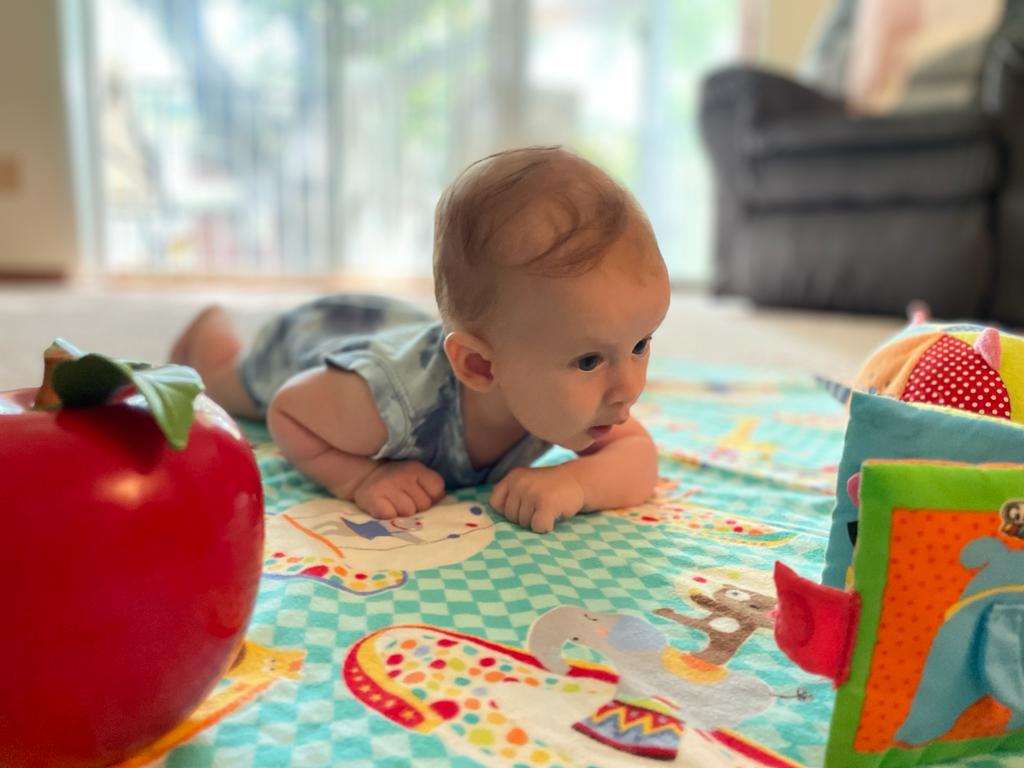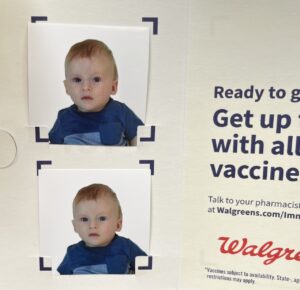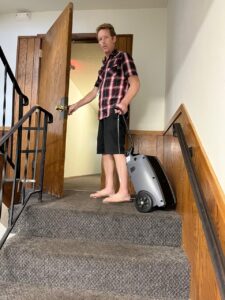Being a non-medical person, I didn’t know what the word “palliative” meant until Nate had his cancer. The hospice people were using that word, so finally I looked it up. Palliative care is medicine or a medical treatment that lessens pain or other negative symptoms, without dealing with their causes.
When Nelson, Ann Sophie, Will, and I first got to the Mayo Clinic, one of the many doctors we saw mentioned that they were setting up a meeting with the palliative care people. Nelson’s immediate response was, “Well, I don’t think we need that, do we?”
Like me, he was thinking back to when his father had been in his final days of cancer and the nurse brought up palliative care. In other words, she was letting us know there was nothing more they could do for Nate except to mitigate his suffering. She called it “comfort measures.” That, they could do.
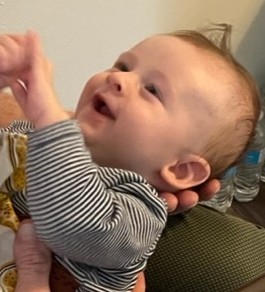 But the meeting at Mayo’s was scheduled for us anyway, and we met with the head palliative MD yesterday. As always, little Will came along and brought sunshine into the small exam room, charming the lady doctor with his smiles.
But the meeting at Mayo’s was scheduled for us anyway, and we met with the head palliative MD yesterday. As always, little Will came along and brought sunshine into the small exam room, charming the lady doctor with his smiles.
Ann Sophie, constantly thinking ahead, had packed Nelson’s medications in her bag and when asked the first question, she reached in and pulled out the prescription bottle the doctor was asking about. “I just brought them,” she said, “in case you needed to see them.”
 In less than a minute she had them all lined up on the exam room bench, grouped by category. The doctor was impressed (as were Nelson and I), and it turned out to be a big help to have the bottles there. Though this palliative expert had all these same drugs on a computer list in front of her, she quickly pivoted to the bench-with-bottles to study labels, count remaining pills, and ask questions about their efficacy.
In less than a minute she had them all lined up on the exam room bench, grouped by category. The doctor was impressed (as were Nelson and I), and it turned out to be a big help to have the bottles there. Though this palliative expert had all these same drugs on a computer list in front of her, she quickly pivoted to the bench-with-bottles to study labels, count remaining pills, and ask questions about their efficacy.
Dr. Christiansen spent well over an hour with us. First and foremost, she wanted to know how Nelson was feeling. What were his most bothersome symptoms? How did his current condition compare with weeks past? Did he need to continue all the pills, or could some be eliminated? Did he have questions about the many drugs he’s taking?
She took time to listen carefully to his answers, once in a while turning toward her computer to tap out notes.
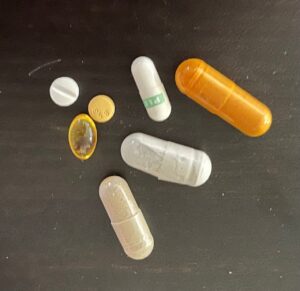 Then she turned to Ann Sophie, asking how she was coping with managing all the pills and their different stipulations. Ann Sophie had her questions ready, and Dr. Christiansen had a detailed answer for everything any of us asked. She was profoundly knowledgeable about every drug, their different uses, and why each was prescribed for Nelson.
Then she turned to Ann Sophie, asking how she was coping with managing all the pills and their different stipulations. Ann Sophie had her questions ready, and Dr. Christiansen had a detailed answer for everything any of us asked. She was profoundly knowledgeable about every drug, their different uses, and why each was prescribed for Nelson.
When we left, it turned out that the palliative care appointment Nelson didn’t think he would need had been very useful. Best of all, though, was when Nelson said, “I know one thing for sure. I feel a lot better now than I did a couple of weeks ago.” And beneath that heartening statement was the valuable care of palliative medicine—along with a few comfort measures from another source:
The Lord is “the Father of compassion and the God of all comfort, who comforts us in all our troubles…” (2 Corinthians 1:3-4)


